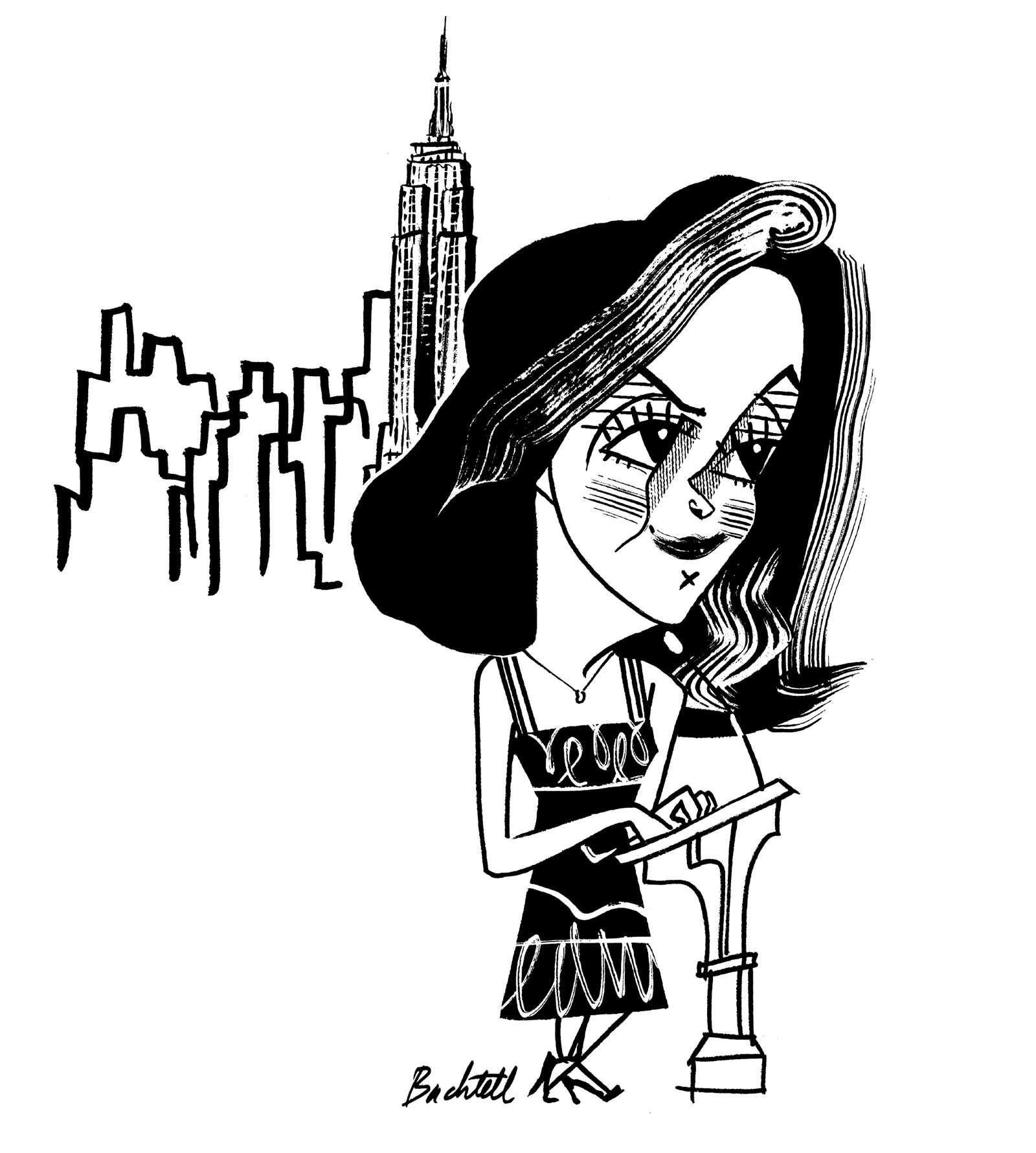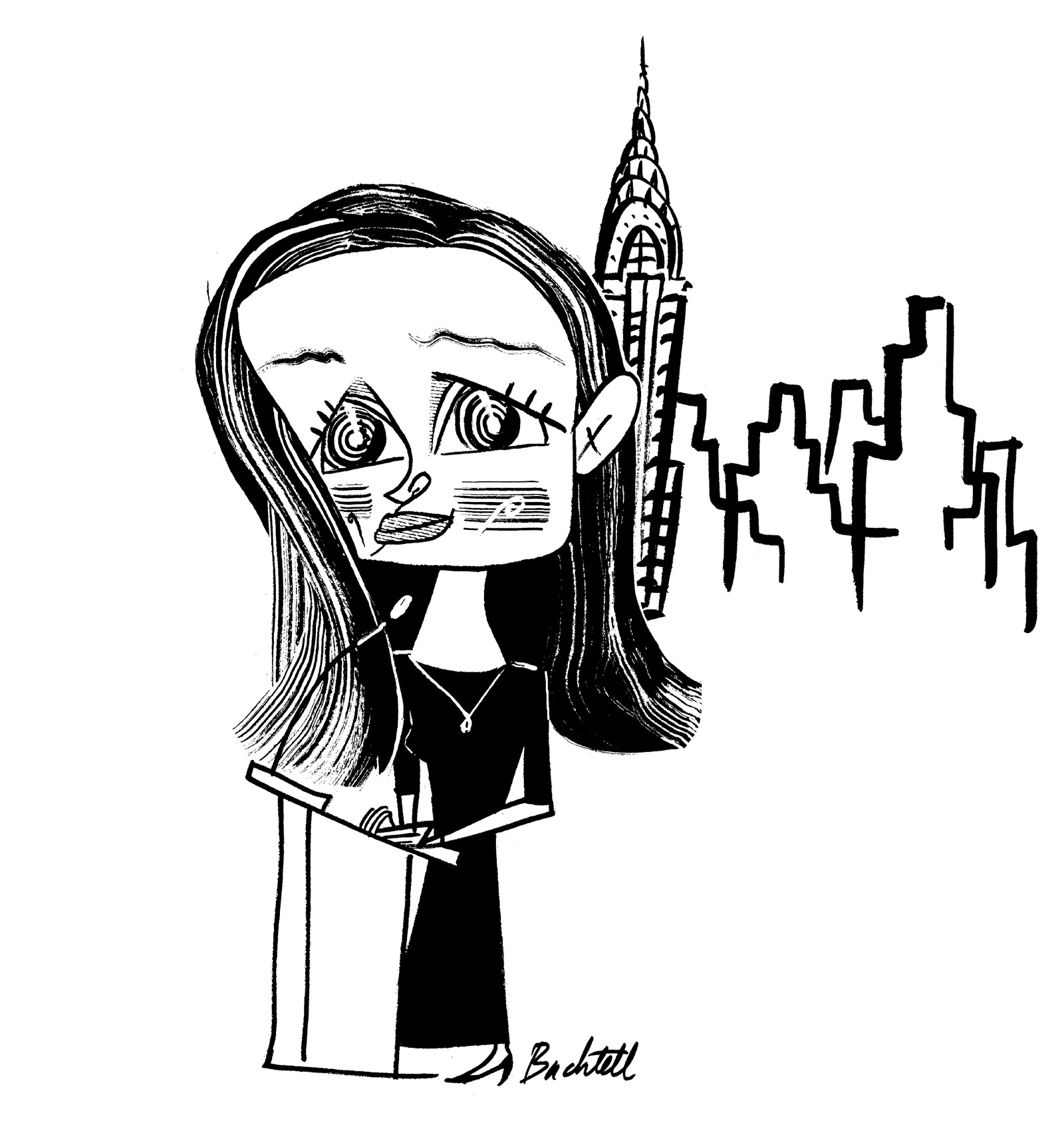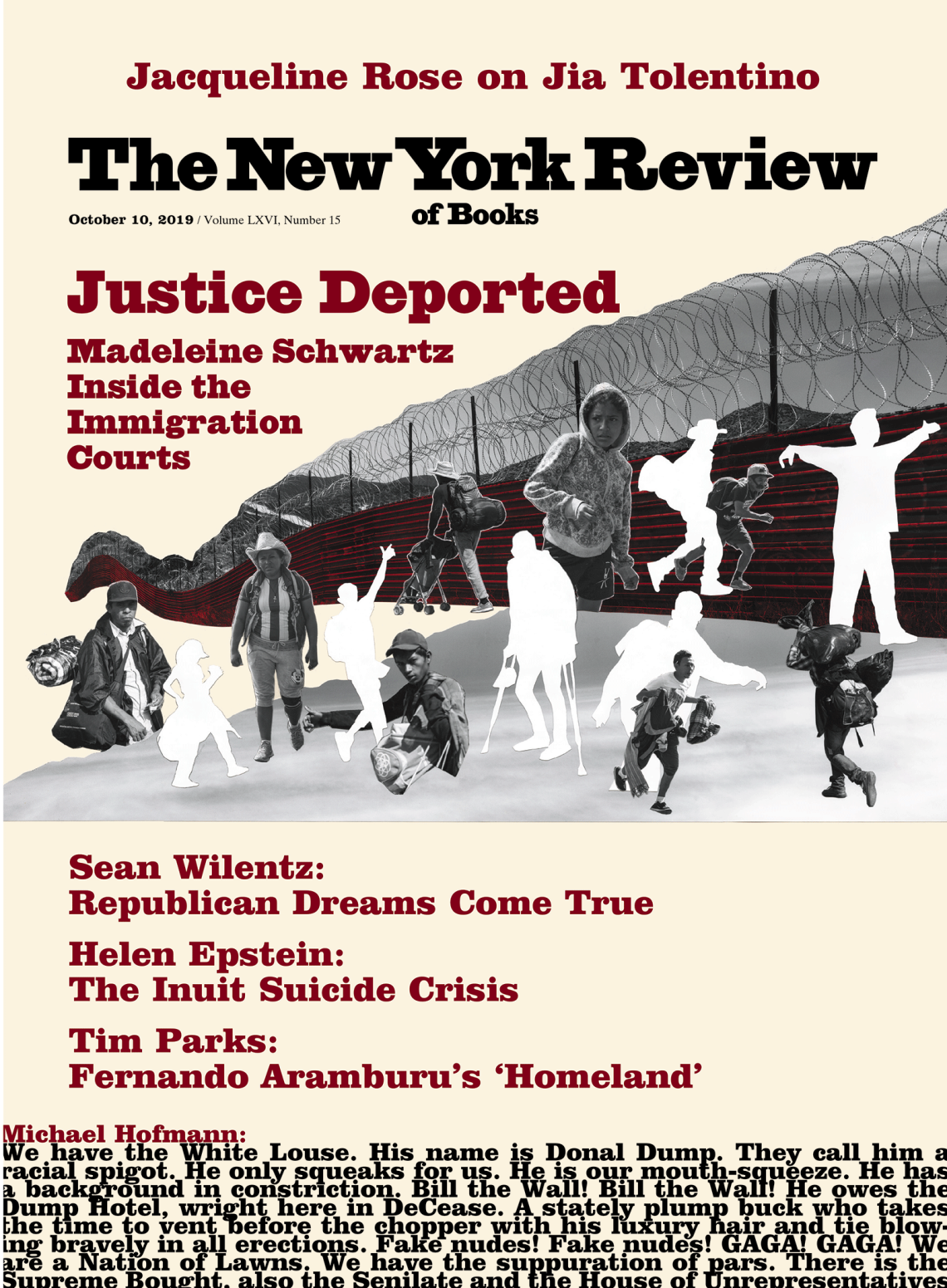Catherine Barnett’s third collection, Human Hours, is full of questions: many have to do with where we might live, and with whom, while we still can. Barnett asks, in “Accursed Questions, iv,” one of four prose poems that are scattered through the book and sprayed with queries like buckshot, “But who dreamed up this experiment? Are we in it or are we conducting it?” This suggestion of doubling holds true for much of Human Hours; the self is seen from the outside in a number of ways, the primary one being comic.
Barnett refers to her “inner clown” in “O Esperanza!,” and in another poem to “clown class.” This isn’t clown as face-painted balloon-botherer but clown as disrupter and endurer, more Berryman than Bozo. In “O Esperanza!,” her inner clown is “full of hope”: “She’s got a bad case of [hope], something congenital perhaps.” This sort of inveterate hope recalls what the late poet and critic Ian Hamilton called “the voice of remorseless optimism.” “If you’d laugh, I’d feel less alone,” the speaker says in “The Sky Flashes,” a witty riff on Berryman’s “Life, friends, is boring” (from his Dream Songs), in which her congenital hope looks for meaning in an extended conversation with her aging family members:
Is the world more closely allied with chaos
or with order? I asked everyone I love.Chaos, my sister said, because she’s a doctor.
Order, my mother said,
because she’s an abstract expressionist.
The meaning she discovers is closer to a winning punch line than a reassuring insight. Behind all this reaching for humor is fear, fear of feeling alone and of the allure of nihilism. Barnett writes, “the only real laughter comes from despair, Groucho said,” in a poem that points to another of humor’s virtues—that of innocence, or gullibility (“The vice my uncles most effortlessly forgave”). She may mean innocence of the correct procedure but also innocence as to what the hell is going on:
Geworfenheit is a German term for being thrown into the middle of a game
without knowing the rules.
That pretty much explains it.
After two terser and tighter collections, Barnett has produced a book of longer, more discursive poems and lyric prose. The four prose poems called “Accursed Questions”—a sequence that was a finalist for the Four Quartets Prize earlier this year—have something of the commonplace book to them; they present an opportunity for gathering the insistent questions the narrator feels compelled to ask, as well as serving as a storage facility for digressions. “So much depends upon the kindness of questions. And the questions we cannot not speak of.” The compulsion you sense behind that double negative seems to be driving Barnett’s new foray into prose, as if in the rush to record her most urgent questions, she needs to forgo the niceties of lineated form.
If these are moments of lower architectural pressure, elsewhere Barnett reaches for rhyme to suggest something like a rare moment of certainty. At the end of the tellingly titled “Eternal Recurrence,” she tightens into iambics: “I am mortality, I can still hear him say/between kisses I remember to this day.” Or she begins with full rhyme only for it to fade out during the course of the poem, in imitation of her sense. In the opening poem, “The Amenities,” a nursery-rhyme tone (“Enchantée, says the key in my hand./When I try to turn it, it turns to sand”) degrades into a stranded, free-verse imagism, hinting at the calamities that await residents of this particular establishment and their obliviousness at check-in: “How sweet/we look in our hotel linens.”
Human Hours is, among many things, a book attempting to cling to some of the virtues of innocence, its ability to look afresh, in a hyperculpable age. This subject is starkest in “The Humanities,” a shocking poem that begins with the question “How does gravity work then?” and ends in an awful realization. The speaker recalls a school project meant to demonstrate the effects of pendulums, involving her and a fellow student lowering themselves from tree branches, which was captured on Polaroid; but the old photos are “haunting to discover…now,” like a tone-deaf parody of a lynching, “white,/safe and dumb.” “How little history we knew,” she writes. “If only all feet could come back//to stand on the ground.” The poem ends sparely, a single line instead of the couplets used throughout—“Don’t let me sleep on” feels stark, private affirmation offered as public conscience. Barnett’s previous work was more personal, less openly civic, than some of the poems here; it seems at times that she has been shocked into a more political address. Yet the shock leads her back to literature, to Beckett’s Happy Days, which she reads aloud “with an actor friend”:
Advertisement
Another heavenly day,
says Winnie as the curtain rises.
She’s buried to her waist in earth
and for a while you think it can’t get any worse.
The humanities.
What are they, really?
Implicit in her question is an overwhelming sense that inhuman acts are being carried out, and that she has fiddled while Rome was catching fire. A similar expansion occurs in “Another Divine Comedy,” in which the speaker rides “down Broadway/on this narrow ultra-low-resistance scooter.” She feels besieged by
the news,
…the trucks, destruction, blood
ICE, uranium, plutonium, floods,
and hears an awful choir rising up:
I used to think the cries were only in my head,
but no.
That was logic.
The cries of despair sound “in the wheels’ raucous junket,”
from the cosmos
tossed in the way of the truck
as if we were no hardier than flowers.
Yet earlier in the poem the human form—though no hardier than flowers—is figured as machine, or as mechanism: “my sturdy self-lubricating relic/shak[es] as it glides down Broadway.”
Barnett adopts the language of the laboratory to make us see the body and what’s done to it anew, in clinical, dissociative ways. “Do not resuscitate, I say to my mind,” she writes in “Forensics,” a surprising poem about choosing the wrong kind of lover, “malefactors and con men.” She remembers the artifice of their self-presentation—“I was mesmerized by such dioramas”—and in recalling her own desire she almost swerves into the third person: “The lips and hands that debouched right into me/who must have wanted to be misled.” The poem highlights the disjunction between being simultaneously “participant and observer,” suggesting how the self, for all its self-awareness, joins in the trespasses upon it. Even the poem’s account of the past is infected by the speaker’s complicity:
Who’ll tell the other stories?
Not I, say the lampposts.
Not I, say the dogs.
Not I, says the I
who’s scanned everything
and scanned the scans onto memory cards
and locked the memory cards in a safety-deposit box.
I did it late at night
as if I were the criminal…
In the bravura “Lyric and Narrative Time at Café Loup,” the speaker sits in a New York restaurant once favored by the literary set and watches as “an old astonished cockroach/crawled out from the spring salad laid before me.” Meanwhile, “with eerie timing,” some young women ask a question that seems to be about time itself: “Has it passed quickly or slowly?” But “the women must have seen me blanch,” so they then ask a series of urgent questions: “What happened?/What was it?” A poem in which the most modest narrative action (a passing cockroach) grows uncertain turns its focus on the (lyric) questions that arise from that uncertainty: “The most pressing questions are naive./For example, who invented hours? Who stole the hair from your head?” If narrative time moves forward through incident and causation, Barnett posits a different status for lyric time—a kind of staying power: “Time is one part of the body that never gets washed./All those moments between the neurons!”
Time is Barnett’s great subject: her obsession with questioning and duration boils down to a “statistic of desire”—some existential algorithm reached for by a mind that consistently wishes to apply measurement to the unquantifiable moment—that says merely “YOU WERE HERE.” In other words, what we can snatch from time are words, and words are the bluntest of instruments. “The closer you are to your addressee the more fragile language is,” she writes in one of the prose poems. Here the height of romance is a hope that bells will ring until “we are decanted from the vessel containing the fluid of future time to the vessel containing the fluid of past time, agitated by the phenomena of hours.”
Hours agitate, time is a troublesome, often physical presence, and this is expressed most affectingly in poems about Barnett’s newly adult son and elderly father. Her protectiveness quarrels with distancing devices, even a trace of mockery or self-mockery when she writes about the independent college boy and her unraveling one-time “funhouse mirror of fathers.” In “Son in August,” the speaker discovers “bluish breast milk” at the back of the freezer and asks, “Do they even make this stuff anymore?/What’s it good for?” The answer has something to do with adoration (Barnett puns on “duration” and “adoration” in the Locke-inspired “Essay on An Essay Concerning Human Understanding”) and a futile but loving attempt to undo the decanting of present into past. Once again the self is seen from outside:
All I had to do was balance
on two feet that seemed to belong
to a marionette who had no idea
what came next or who governed the strings.
That shift, the externalizing gesture, culminates again in the third person:
Advertisement
There’s no emergency, I told her,
just get back to your car…. I didn’t mind accompanying her,
I myself had nowhere to go.
The subtle loss of the child into his new independent future is deftly echoed in this elision of self through the dance of pronouns, the spry double-edged plunge of “I myself had nowhere to go,” which is as much about the word “I” as the person it denotes.
In “Central Park,” Barnett finds an apt image for the kind of adoration or devotion she means, drawing on the memory of her young son’s Christmas present, a toy boat, stranded in a pond:
…I pulled the black plastic liner bags
from the empty trash cans
and stepped into them,
one for each leg,
and waded into the addled water
to salvage the present.
It could be a scene from a Buster Keaton movie, but behind the pratfalling is the poignant engine of adoration, a desire to “salvage the present.” Throughout Human Hours there are poems as almost-prayers and present-tense elegies for those whose hair “is the color of ashes/not yet set free upon the waters.”
An elegaic strain is also present throughout Hannah Sullivan’s T.S. Eliot Prize–winning debut, Three Poems. The first of the three long poems that make up the collection is a sort of retrospective on disappearing innocence, another shared concern with Barnett. Sullivan deploys an array of traditional forms, from sustained rhyming couplets to terza rima, but while her formal rigging is more pronounced than Barnett’s—across “You, Very Young in New York,” “Repeat Until Time,” and “The Sandpit After Rain” (the shortest of which takes up twelve pages in the volume)—it’s not because she is any more certain than Barnett about time or its erasures. For Sullivan, “days may be where we live, but mornings are eternity./They wake us, and every day waking is absurdity.” Absurdity is a dye in her water: even the most apparently assured moments are colored by the risk of meaninglessness, as the second poem seems to warn: “True form is often seen only in retrospect, too late./Sometimes streams peter out; sometimes a grand Niagara lies in wait.”
Sullivan’s voice has a suppleness that canters within the formal constraints she imposes on it. In “You, Very Young in New York,” she can be mischievous in her rhyming, using slant- and half-rhymes to pair “Obama’s domestic policy” with “David Foster Wallace,” only to later invoke the critic Hugh Kenner’s belief in “reasonable rhymes.” The first poem is in a Didion-inspired second person, but as with Barnett the choice goes deeper than syntax; this is “you” as a means of self-distancing. The “you” addressed may once have been the poet but isn’t any longer; the “huge lost innocence” represented by this poem’s memory is just that—lost. The youthful nights out preceded by beauty treatments and punctuated with cell phone photos are in the past, like the dead-end jobs and lists of consumables:
Schramsberg ’98 is working well for Caitlin in the nouveau Bellini.
Jed crafts a drink from porter, coffee rum, and Brachetto d’Acqui,
It can only be written in Chinese but is ordered as “the vice grip,”
Its taste is whipped cream and kidneys, beer bitter and honeyed.
He makes it for the girl in leathers with a face like the Virgin Mary.
There is something moving about seeing so much hope, excess, and uncertainty portrayed in the present tense but evidently experienced in retrospect. The city we are shown is implicitly a ghost town, a film set populated by other you’s who have also long since got off the ride that was their New York. The speaker is distanced in another way, too: she is a Brit abroad, and the poem’s title might as justly be “You, Very English in New York.” The surface of this opening poem is all youthful desire and “the permeability/Of one person to another”—a reasonably well-mannered bacchanal of possibility, proper names and brands, and a wishing (even in its midst) to be elsewhere, missing a life of reverie, whether dreaming of Henry James’s long-vanished New York or David Bowie’s more recently deceased Berlin.
The second poem, “Repeat Until Time,” is an ambitious, more theoretical treatise on time and eternal return (another shared interest with Barnett) and, as in Human Hours, a dark sense of humor is the oil in the motor—“Repetition’s sense of comedy/Unsheathed as architectural poverty.” At times it feels like it’s overreaching, taking in philosophical discussions of nothingness and Shelley’s ars poetica; but if the poem verges on overplaying its encyclopedic hand, it is always pulled back by Sullivan’s astonishing capacity for the seen, the telling analogy, or visual set-piece, as in a section on “failed form,” “hectic with loveliness,” which explodes, almost photographically, with life:
The horse chestnut gets on tediously with its leaves,
Provides spiked toys, diets middle-aged in winter,
Gets low-carb skeletal, squash lean, only to
Have another go with the old Coolwhip come spring.
Sullivan’s choice of register is one of her main assets—“tediously” is perfect for its huffing nod toward the drawn-out decay of the season. The colloquial undercutting of “the old Coolwhip” is chatty and offhanded, while evoking both spring’s excess and a certain insubstantiality. She’s an exquisite image-maker and analogist—“under a microscope,/An ovary is Venice at sunset”; a deer has a “plump bunny rump, the hooves in child’s pose.”
Like Barnett, Sullivan never forgets to bring her celestial concerns down to the human scale. Of “cyclical theories of the universe,” she asks, “Would it be no-pulp OJ next time, too?” Her sense of the “human hours” is best displayed in the book’s third poem, “The Sandpit After Rain,” centered around “the year of life events./All these things to get a card for.” While the middle section asks questions about time in a theoretical way, the third section enacts them: childbirth and a father’s death making a mockery of attempts to impose control or logic on life. “Things happened in the wrong order, out of nature.” The ideas of time, of any predictable rules of physics, are shattered, and Sullivan finds she needs to unstitch the lines of Ecclesiastes: “There is no necessary season for things/and birth and death happen on adjacent wards.” Time becomes “a ship’s container, with luggage/And wine and bananas lashed down to the emptiness.” That “emptiness” is especially poignant, given what has come before—the straining for meaning or control, both formal and theoretical.
Sullivan finds consolation in “the courage of street cleaners,/Because of the hopelessness of their work,” and this slow getting-on in the face of forces that will undermine and destroy your work, only to send you back again the next day, feels like an “uncertain hosanna” after all. Resilience and bravery turn that eternity of morning into a defiant, potential consolation: “This is the world and the entropy of things,” Sullivan writes, a far cry from the wide vistas of ungraspable potential in the first poem.
For all the book’s rootlessness and excitement, its final poem ends with a photograph of the then child, now mother, being thrown into the air by her late father:
You have been among the living twice,
And loved both times.
You have fallen in the lurid air.
In this image we are reminded of Barnett’s less fondly recalled Polaroids, an adult rediscovery of one’s youth coming with the realization of “how little history we knew”; of a lost innocence shaken, in Sullivan’s work, less by external horrors than by family connection and its loss. Love at such a pitch of extremity is a too-bright thing to dwell in, but this image, even if unrecoverable in this universe or the next, offers the affirming certainty that “YOU WERE HERE,” an echoing reassurance lashed down to emptiness, like luggage, wine, and bananas.




